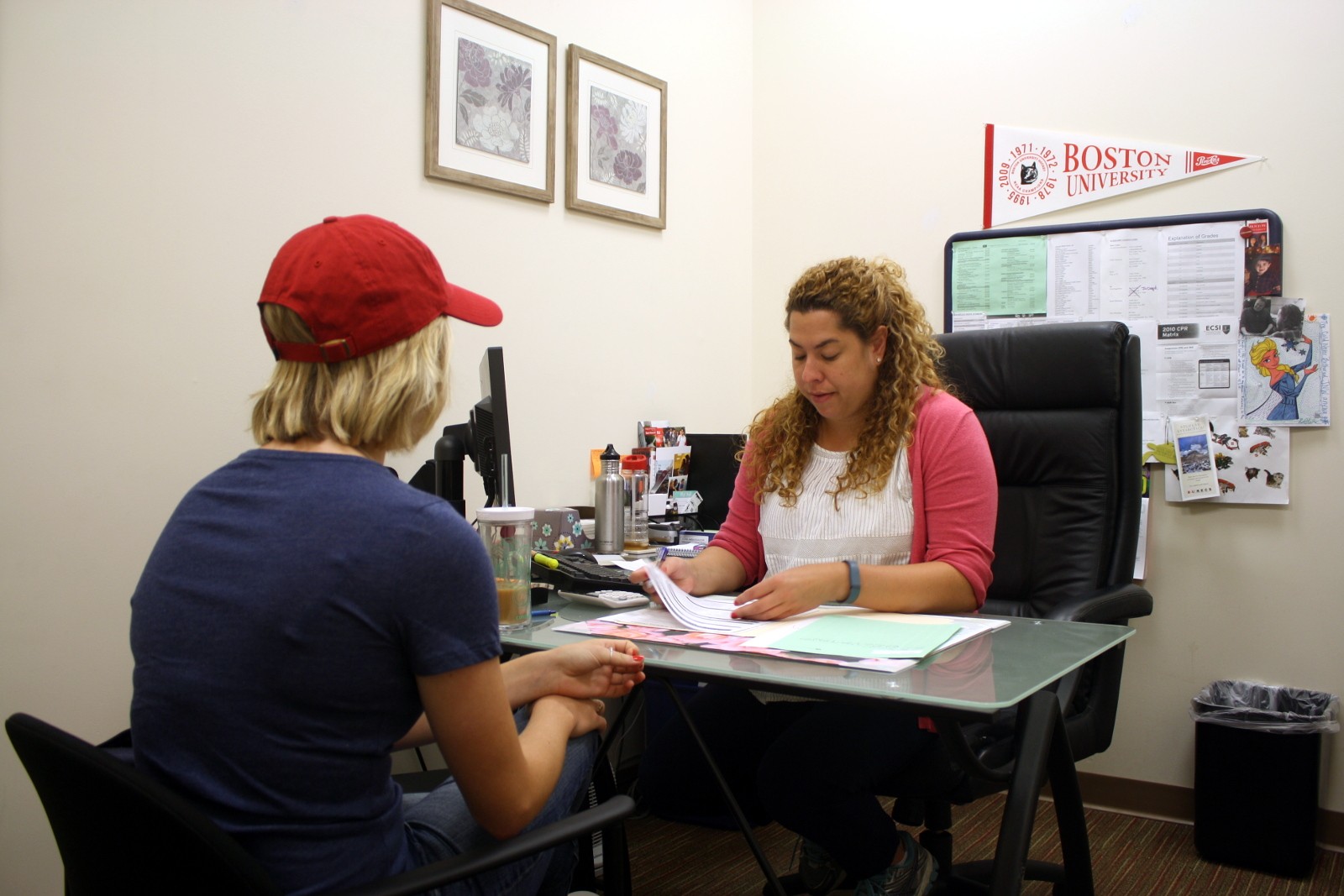
Students in Boston University’s College of Communication received an email Wednesday from the newly-branded COM Undergraduate Affairs, formerly COM Student Services, alerting them that COM upperclassmen will now be assigned faculty advisors for their junior and senior years. According to the email, faculty advisors are full-time professors within a student’s chosen major.
The renaming comes with the rearrangement of duties, said Bill Taylor, assistant dean of Undergraduate Affairs at COM.
“Students Services was all things students at COM, including graduate and undergraduate,” he said. “So we’re splitting grad and undergrad so that we have services for both student populations. The graduate affairs office, we rebranded over the summer to get in line with the same kind of brand change in undergraduate affairs.”
Taylor said that Undergraduate Affairs has always wanted to have a dual advising program.
“We really want our faculty to be really involved with our students,” he said. “We view the faculty as professionals in the same field that the students are studying. We can give all the transactional advising but sometimes when you ask a specific question or need career mentor that’s specific to your field, a faculty member is just a great resource for students to have.”
Taylor said COM offered faculty advisors in the past and stopped about four or five years ago, but said he believes “students needed that extra layer of support.”
“[Once the program stopped] I think we thought students and professors would continue to have that same kind of relationship where they could just go to professors’ office hours and have those kinds of conversations,” he said. “But I think sometimes students are just a little bit more shy and won’t do it, not knowing who to turn to.”
Fred Bayles, a journalism professor in COM and a faculty advisor for upperclassmen and graduate students, said so far he has been assigned three or four graduate students and is expecting to be assigned 10 to 12 undergraduate students.
Bayles said advising and mentoring aspiring journalists is a grand tradition in the world of journalism, and is essential to developing as a professional.
“When I was coming up I had a number of people who were important to my career, my learning,” he said. “They took me under their wing, everybody wants you to succeed and everybody wants to help you. All of the journalism professors had that kind of experience and we want to return it. We want our students to succeed.”
Taylor said he also believes finding a great professional mentor is important and hopes that the students find them through the new faculty advisors.
“I hope that students find great professional mentors,” he said. “So many of [the professors] are so accomplished in their field and it’s just an opportunity for them to get to know faculty outside the classroom, not having that before. I hope they still will come to [Undergraduate Affairs] for the nuts and bolts of ‘what do I need for graduation.’”
Although the new advising program may not be as beneficial for seniors, they will always have someone to talk to, Bayles said. He said it’s never too late to receive faculty advising.
“Go in and talk to the career staff. It’s September, you should be developing a work strategy. You want to have a plan,” he said. “We’re all professionals, we all have extensive backgrounds in our careers so we have a lot of information and understanding and context. So it’s something better to do it sooner than later.”
Taylor said ultimately he hopes the students use the faculty advisors to their advantage.
“I hope they’re using it as a networking opportunity really,” he said. “Again, a lot of our professors have been professional in those fields and it’s a great opportunity to network and find out, ‘what careers are open to me and what connections you might have that might be able to help me as a student?’”
Several COM students are thrilled about the new faculty advisors and the guidance they hope to receive from them.
Lauren Thimmesch, a first year COM grad student, said the faculty advisors are a valuable resource to achieve success.
“After grad school we hope to get a good job,” she said. “So being able to talk to somebody in the professional field that can help us get to where we want to get is like a huge asset.”
Julia Keith, a junior in COM, said she likes guidance when making decisions, so having an advisor in her major that can help her decide which direction to take will be beneficial.
“A professor in your department would probably know what’s best for you,” she said. “I feel like when you go to a staff advisor, it’s really great but he doesn’t know me. He sees so many students. He doesn’t know what I want to get out of classes, and someone who’s in the film and TV department that I trust would be really good at advising me.”
Jordan Pories, a senior in COM, said although he thinks faculty advisors could have been instituted sooner, he still has plenty of time to use an advisor to his advantage.
“I’m excited,” he said. “At the same time faculty members have been very good in accommodating students in the past but I think it’s an exciting step forward to give us opportunities to better plan our careers and our time at school.”


















































































































